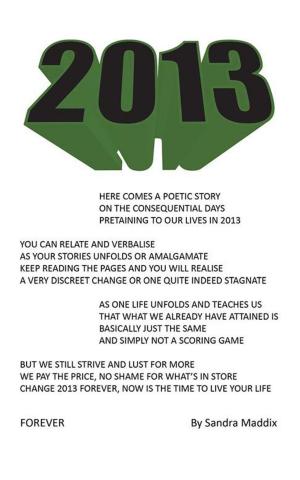| Author: | Elizabeth Donahey | ISBN: | 9781456752835 |
| Publisher: | AuthorHouse | Publication: | April 15, 2011 |
| Imprint: | AuthorHouse | Language: | English |
| Author: | Elizabeth Donahey |
| ISBN: | 9781456752835 |
| Publisher: | AuthorHouse |
| Publication: | April 15, 2011 |
| Imprint: | AuthorHouse |
| Language: | English |
Elizabeth Donaheys Traversing Regression is a collection of poems written during the 1990s. Th e anthology is absolutely fascinating. The poems are generally brief, free-form and thematic. The language and the imagery are beautiful, powerful, and impressionistic such as the poem Provence, France. Nature inspires much of the imagery, from rose blossoms to blue heavens, moonlight, trembling trees Donahey writes in the Romantic tradition of Wordsworth and Byron (to whom the longest poem in the book, Breath for Byron, is an ode), but I cant help being reminded of the Poetes Maudits as well as Beaudelaire, Verlaine, Rimbaud, and Mallarm. The love motif is present in a majority of the pieces, abstractly in "Peasant Girl," and "Disturb the Universe," and more specifically, in the later poems, where she expresses love or admiration for a specifi c individual. There is also a great deal of pain and sorrow. Dark themes - death, abandonment - abound ("Can I Walk," "Drifting Ugly through Algebraic Language," "Blue Finger Baby Frozen Ashes," Winter Whines," and they are sometimes self-referential "Against my Constant Mirrors Refl ection." Consequently, the poetrys most exciting feature is the juxtaposition of contrasts, for example love and death in Kissing Death on the Lips. We even find sophisticated sociological themes such as race relations, as in "You Are Your Own Victims" and "The Black One." The collection is more or less chronological, and it seems to refl ect Elizabeths spiritual growth. The later poems seem sunnier, expressing more uncomplicated love, as in "Elevated" and "Love song." This series of poems exudes authenticity and existential truth. It is the revelation of a persons inner quest. It is gripping and strongly evocative. It is a glimpse into Elizabeths soul. Reading her poems, we learn to know her, and to love her. Dr. Tom Kando, PhD, Professor of Sociology, Emeritus
Elizabeth Donaheys Traversing Regression is a collection of poems written during the 1990s. Th e anthology is absolutely fascinating. The poems are generally brief, free-form and thematic. The language and the imagery are beautiful, powerful, and impressionistic such as the poem Provence, France. Nature inspires much of the imagery, from rose blossoms to blue heavens, moonlight, trembling trees Donahey writes in the Romantic tradition of Wordsworth and Byron (to whom the longest poem in the book, Breath for Byron, is an ode), but I cant help being reminded of the Poetes Maudits as well as Beaudelaire, Verlaine, Rimbaud, and Mallarm. The love motif is present in a majority of the pieces, abstractly in "Peasant Girl," and "Disturb the Universe," and more specifically, in the later poems, where she expresses love or admiration for a specifi c individual. There is also a great deal of pain and sorrow. Dark themes - death, abandonment - abound ("Can I Walk," "Drifting Ugly through Algebraic Language," "Blue Finger Baby Frozen Ashes," Winter Whines," and they are sometimes self-referential "Against my Constant Mirrors Refl ection." Consequently, the poetrys most exciting feature is the juxtaposition of contrasts, for example love and death in Kissing Death on the Lips. We even find sophisticated sociological themes such as race relations, as in "You Are Your Own Victims" and "The Black One." The collection is more or less chronological, and it seems to refl ect Elizabeths spiritual growth. The later poems seem sunnier, expressing more uncomplicated love, as in "Elevated" and "Love song." This series of poems exudes authenticity and existential truth. It is the revelation of a persons inner quest. It is gripping and strongly evocative. It is a glimpse into Elizabeths soul. Reading her poems, we learn to know her, and to love her. Dr. Tom Kando, PhD, Professor of Sociology, Emeritus















